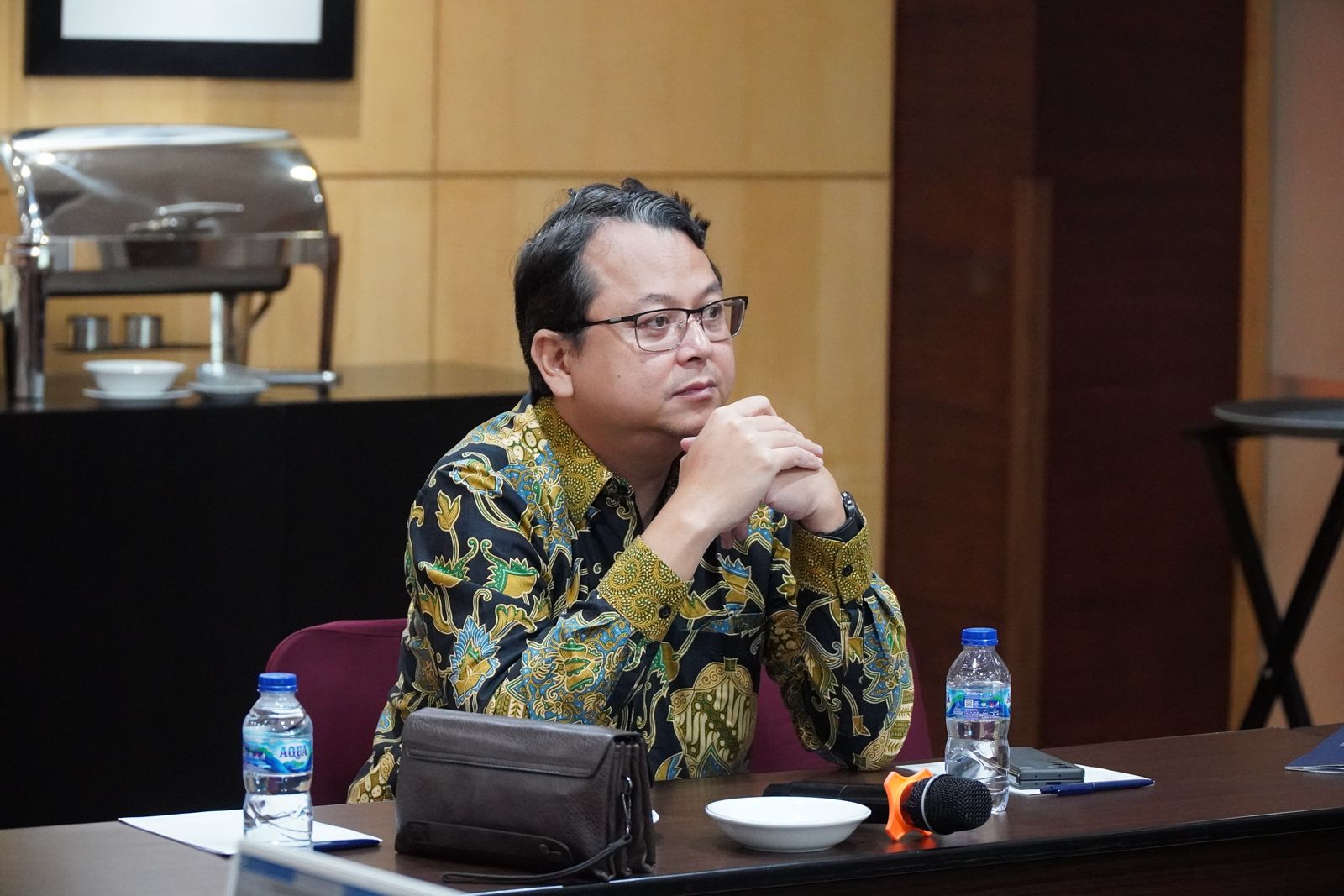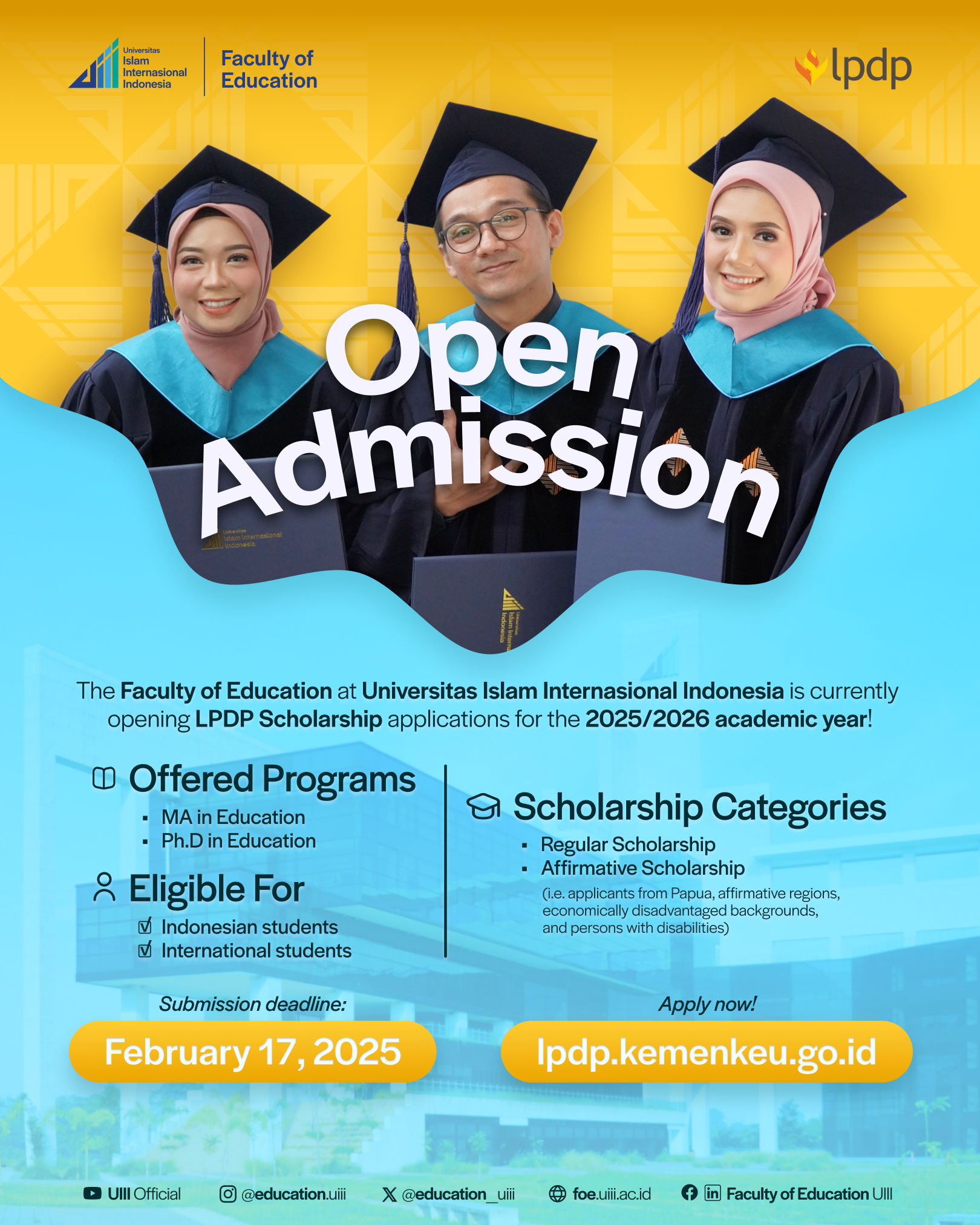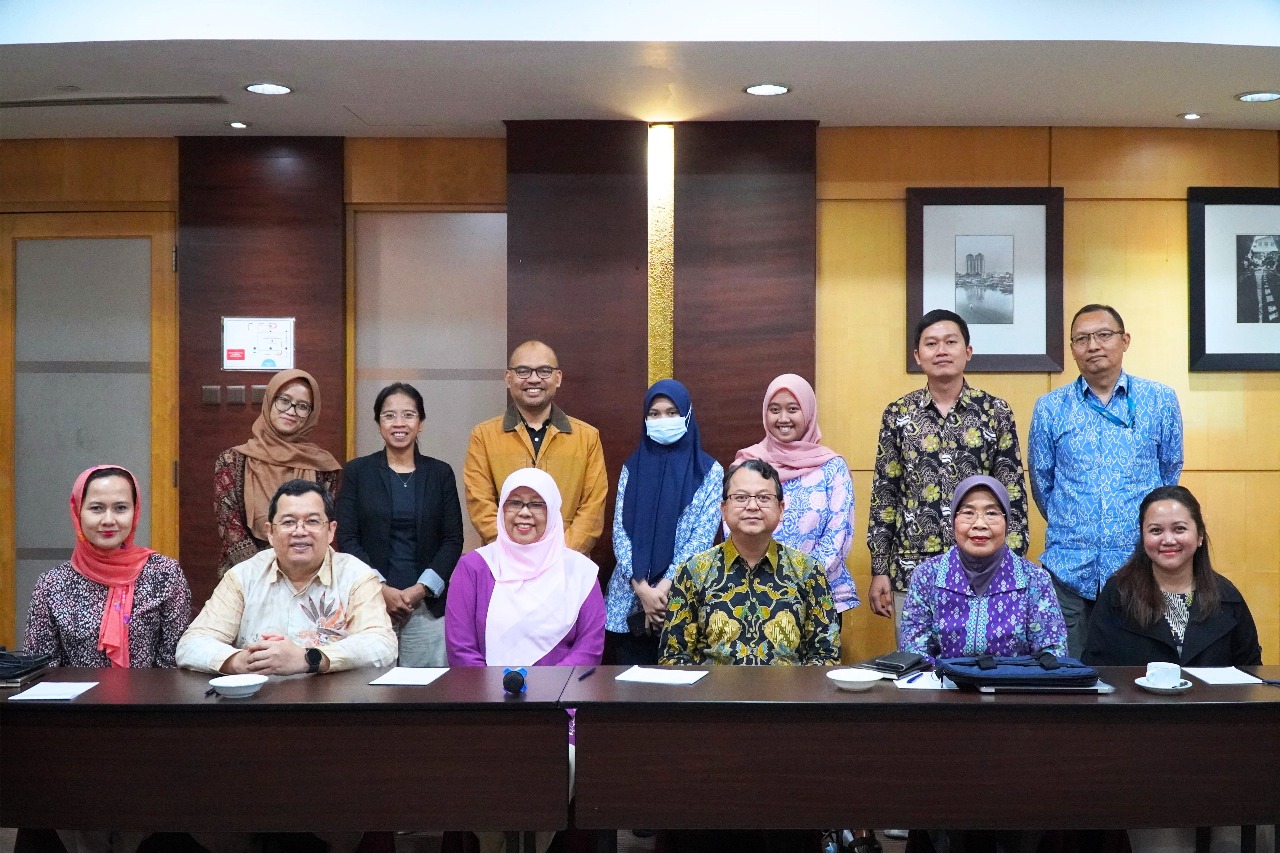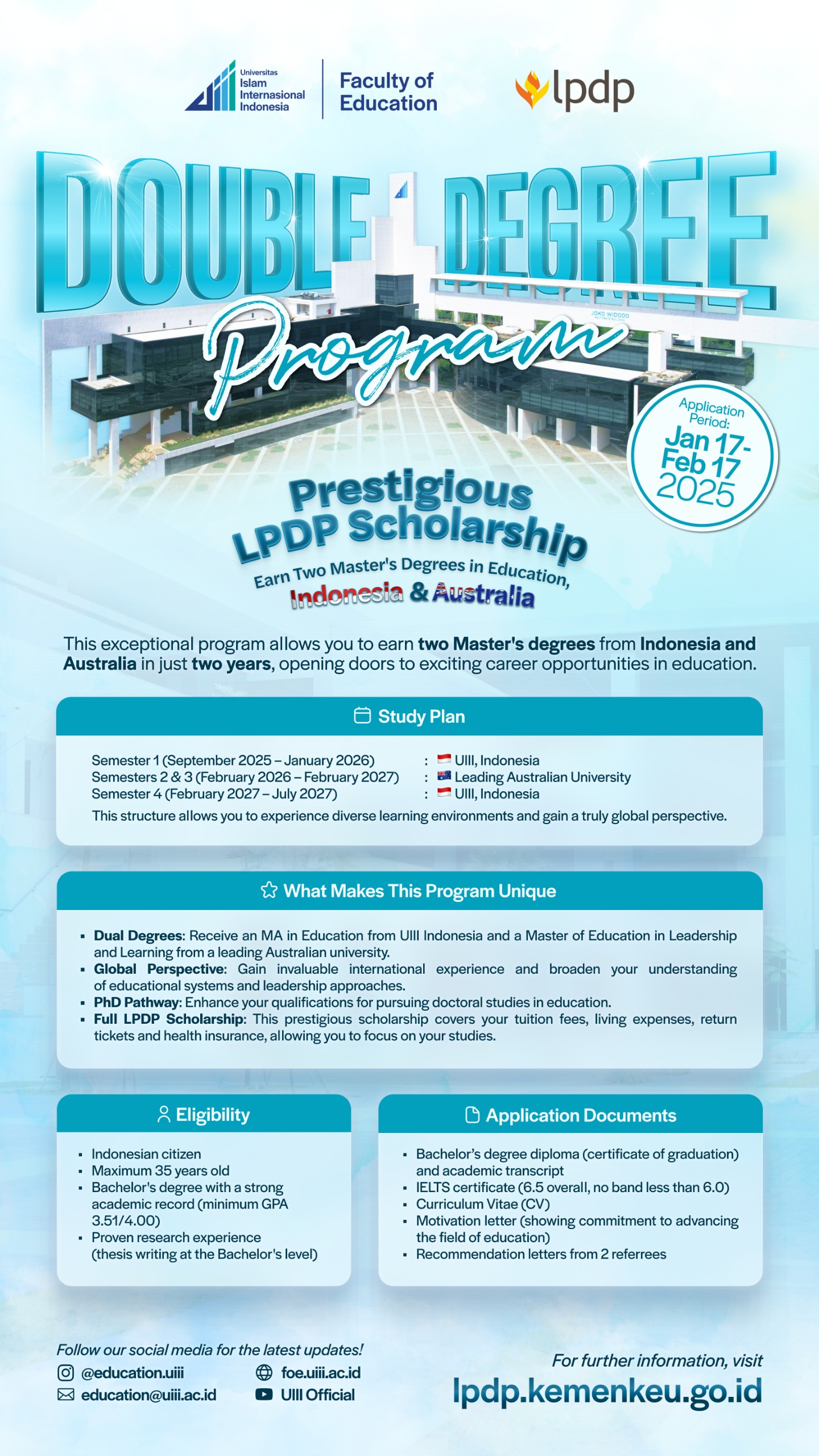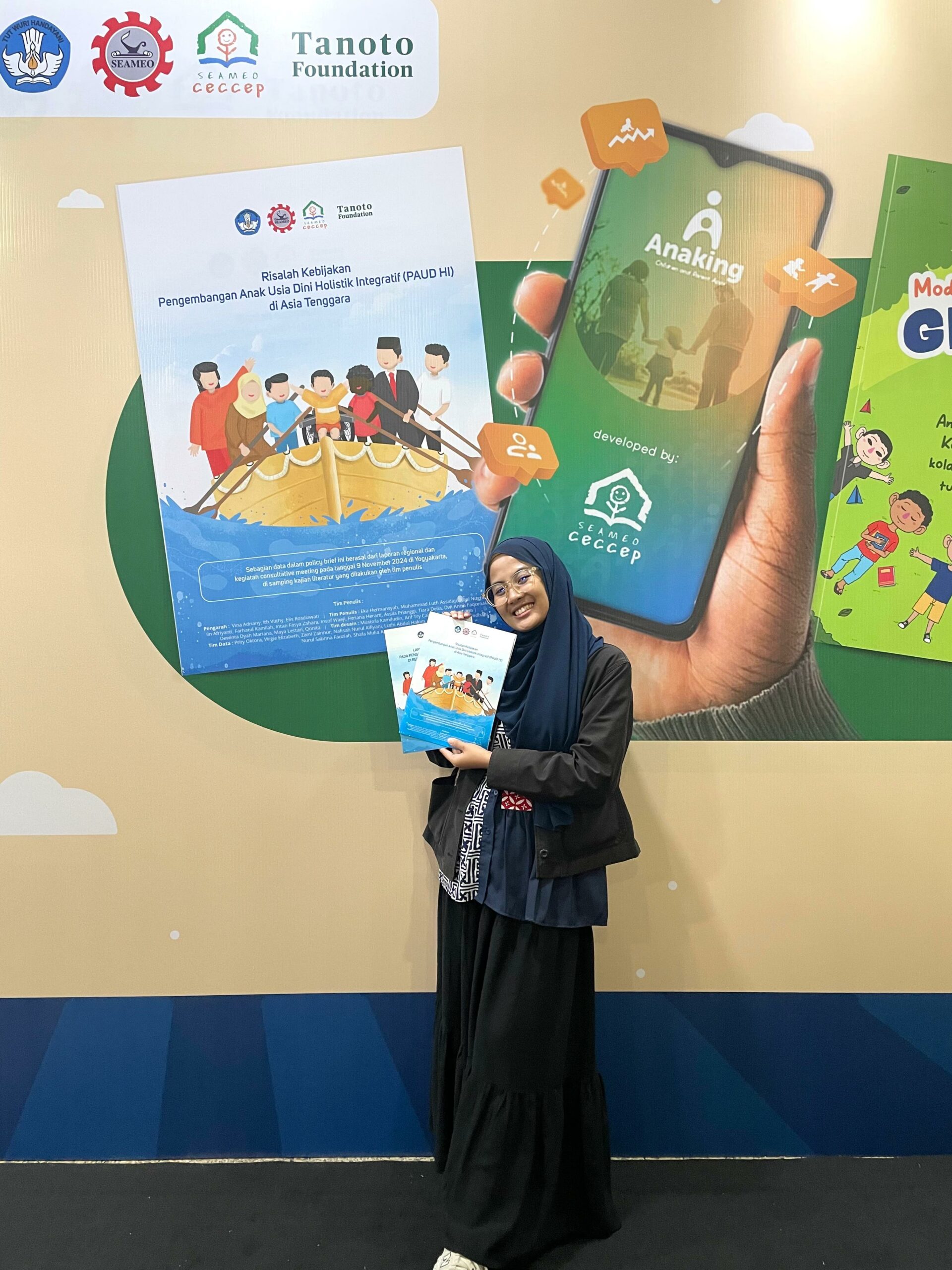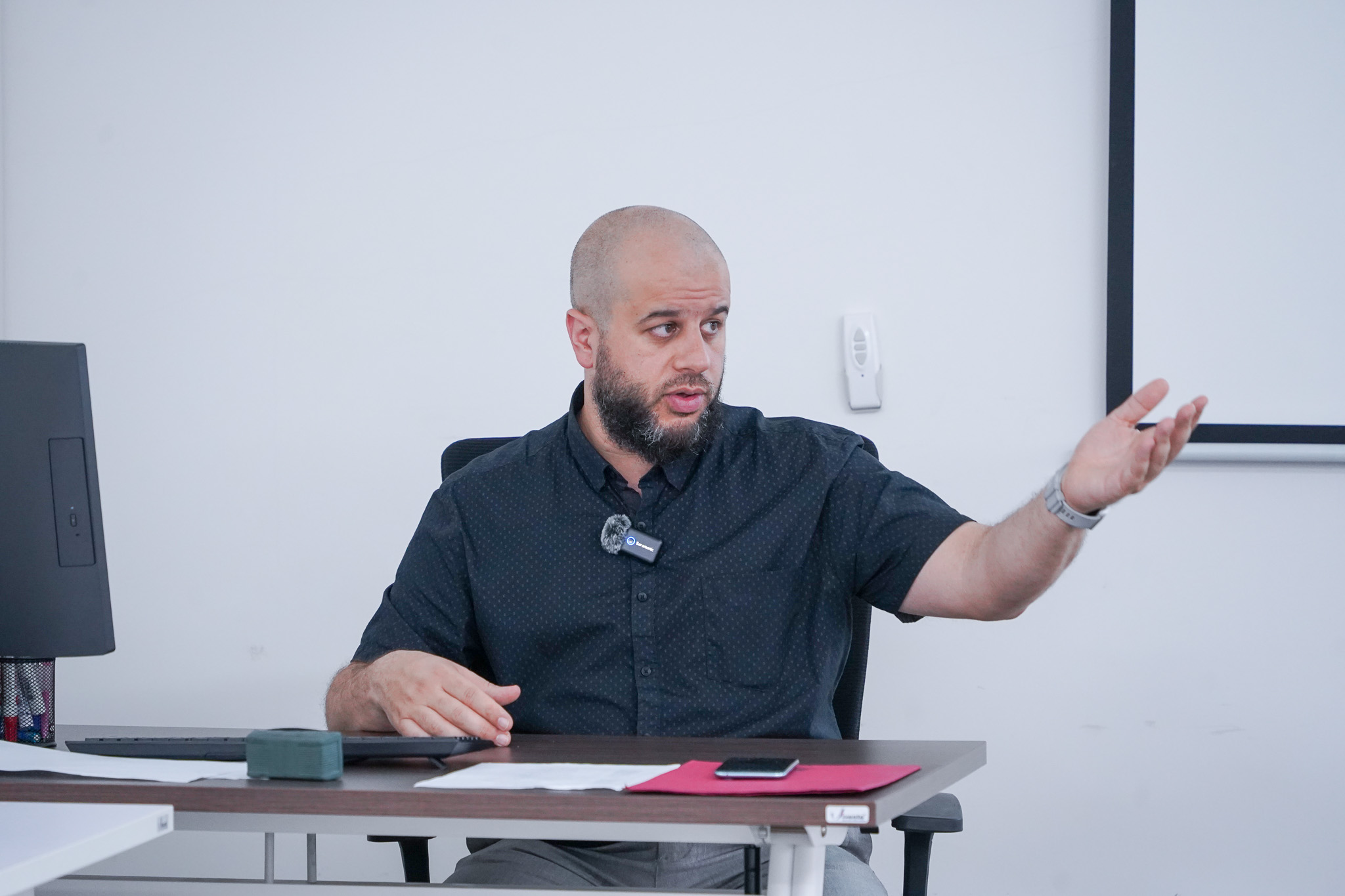Scholar-in-Residence (SIR) Program 2025, Batch 6 & 7 [extended to 24 Feb 2025]

The Faculty of Education at UIII invites all Ph.D. holders to participate in the Scholar-in-Residence (SIR) Program 2025, Batch 6 & 7 to spend three months as a research fellow.
During the grant period, awardees are expected to serve as guest lecturers, provide academic consultations, act as thesis examiners, present at a LunchTalk, and publish an article in Muslim Education Review (MER). The topic of the article should match the four areas of concentration at the Faculty of Education:
➡Curriculum, Teaching, & Learning
➡Educational Management & Policy
➡Educational Evaluation and Assessment
➡Education and Society
Each recipient will receive IDR 12 Million per month (excluding tax) and are expected to live in the campus facilities during the grant period (reimbursement of economic return tickets and on-campus accommodation are provided).
The awardees will start on:
➡May 1 – July 31, 2025 (Batch 6)
➡September 1 – November 30, 2025 (Batch 7)
Requirements:
➡CV
➡Application Letter
➡Writing sample (published article)
➡Research writing proposal (to be published in MER)
?Deadline: February 24, 2025
?Send your application to: education@uiii.ac.id
Please make sure to read all the details about the program. International applicants are encouraged.
CALL FOR PAPERS: Muslim Education Review (MER) 2025

CALL FOR PAPERS: Muslim Education Review (MER) 2025
The Faculty of Education at UIII is pleased to invite submissions for our 2025 editions of Muslim Education Review (MER). We welcome scholarly articles that explore educational concepts, practices, and policies in the Muslim world.
? Submission Deadlines:
April 15, 2025 (Volume 4, No. 1)
October 1, 2025 (Volume 4, No. 2)
Please submit your manuscripts via email to mer.journal@uiii.ac.id. For more information, including submission guidelines and past editions, visit journal.uiii.ac.id/index.php/mer.
We look forward to receiving your contributions!
Planning, Executing, Evaluating—Repeat: FoE Makes End-Semester Gathering a Tradition

Planning, Executing, Evaluating—Repeat: FoE Makes End-Semester Gathering a Tradition
February 04, 2025
Contributors: Supriyono & Virda Lalitya Umam | Editor: Dadi Darmadi | Photos: Virda Lalitya Umam
As part of its ongoing commitment to academic excellence, the UIII Faculty of Education (FoE) held a full-board meeting with all of its civitates on January 23, 2025, aimed at evaluating past semester activities while strategizing for the upcoming term. This routine gathering serves as a crucial platform for reflecting and evaluating its educational management activities to ensure it remains at the forefront of educational advancement.
The meeting provided an opportunity for the faculty members to assess the effectiveness of previous programs, address challenges, and refine strategies for the future. Discussions revolved around enhancing academic curricula, fostering research collaborations, and strengthening community engagement—three core pillars of Indonesia’s higher education, also known as ‘Tri Dharma Perguruan Tinggi’. Lecturers and academic staff actively participated, sharing insights on improving student learning experiences and adapting to the rapidly changing educational landscape.
A highlight of the meeting was the presentation delivered by Dr. Berry Juliandi, M.Si., Dean of the Faculty of Mathematics and Natural Sciences at IPB University and Acting Director of Learning and Student Affairs at the Ministry of Higher Education, Science, and Technology. His session, titled "Impactful Education: Future Direction of Education Policy in Indonesia," provided valuable perspectives on higher education challenges and innovations crucial for the faculty to navigate its future orientation.
Following his presentation, an engaging discussion took place among faculty members, allowing them to engage with pressing educational concerns, including curriculum relevance, graduate employability, and the role of AI in education. These discussions reinforced the faculty’s dedication to equipping students with 21st-century skills and preparing them for cross-sectoral disruptions.
Through this meeting, the UIII Faculty of Education reaffirmed its commitment to continuous improvement and impactful education. By fostering dialogue for its educational management strategies, the faculty aims to drive meaningful changes that benefit students, academia, and society at large.
‘Tri Dharma’ No Longer Enough: Here’s the Fourth Pillar Universities Must Have

‘Tri Dharma’ No Longer Enough: Here’s the Fourth Pillar Universities Must Have
February 04, 2025
Contributors: Supriyono & Virda Lalitya Umam | Editor: Dadi Darmadi | Photos: Virda Lalitya Umam
As Indonesia faces pressing global and domestic challenges, a question emerges: is the traditional role of universities in education, research, and community service—commonly known as Tri Dharma—still sufficient? Well, the short answer is: “No, it’s not”, according to Dr. Berry Juliandi, M.Si., Dean of the Faculty of Mathematics and Natural Sciences at IPB University and Acting Director of Learning and Student Affairs at the Ministry of Higher Education, Science, and Technology.
Speaking at a full-board meeting of the UIII Faculty of Education on Thursday (01/23/2025), Dr. Juliandi emphasized the urgent need for Indonesian universities to evolve beyond the conventional paradigm in viewing the function of higher education. In his presentation, titled “Impactful Education: Future Direction of Education Policy in Indonesia”, Dr. Juliandi outlined how higher education institutions must move beyond merely producing graduates to actively shaping the country’s socio-economic landscape.
He noted that while the Tri Dharma has long served as the backbone of Indonesia’s academic framework, it no longer accommodates the demands of today’s fast-evolving world. Instead, universities must integrate a fourth dimension—which he identified as “national impact”—by fostering innovation, aligning research with industry needs, and equipping students with 21st-century skills to navigate technological disruptions.
This paradigm shift comes in response to pressing national concerns, including the employability of graduates, effectiveness of research funding, the disconnect between academia and community needs, and the underdevelopment of scientific and technological talent. Dr. Juliandi stressed that universities should no longer function as isolated knowledge hubs but as dynamic institutions that contribute directly to economic growth, policy development, and technological advancement in line with the Sustainable Development Goals (SDGs).
He also highlighted the risks and opportunities posed by artificial intelligence (AI) in education, warning that institutions must prepare students for an era where AI literacy is essential. “The real AI war will not be between humans and AI, as commonly depicted in fiction, but between those who can leverage AI and those who cannot,” he remarked. He encouraged universities to embrace AI responsibly while upholding academic integrity.

Closing his presentation, Dr. Juliandi underscored the importance of character-building as the foundation of education. “No matter how advanced our systems become, the true measure of education is the integrity and character of our students and educators,” he concluded.
Dr. Juliandi’s insights sparked a lively discussion among UIII Faculty of Education lecturers, who explored the implications of these changes for their academic programs and institutional strategies. As Indonesia transitions itself into a new era of higher education, the message is clear: universities must redefine their purpose, moving beyond the Tri Dharma model to become catalysts for national transformation.
LPDP Scholarship to study MA and PhD in Education program at Faculty of Education UIII

We are delighted to announce that the Faculty of Education at UIII is opening applications for LPDP Scholarship!
Bridging Education and Impact: Transforming Indonesia's Academic Landscape
 Bridging Education and Impact: Transforming Indonesia's Academic Landscape
Bridging Education and Impact: Transforming Indonesia's Academic Landscape
Contributor: Virda Lalitya Umam
As an effort to evaluate past academic activities and prepare for the upcoming term, the UIII Faculty of Education routinely organizes a full-board meeting with its civitates, most recently held this Thursday (01/23/2025). In this opportunity, Dr. Berry Juliandi, M.Si., Dean of the Faculty of Mathematics and Natural Sciences at IPB University and Acting Director of Learning and Student Affairs at the Ministry of Higher Education, Science, and Technology, was also invited as a guest speaker. His presentation and workshop, titled "Impactful Education: Future Direction of Education Policy in Indonesia," touches on the challenges, potential, and plans for Indonesia's higher education from a policymaker's perspective.
Opening his presentation, Dr. Juliandi began by addressing the challenges that Indonesia's strategic sectors face. These include, but are not limited to, climate change, global economic decline, technological disruption, and societal polarization. As the fourth most populated country, Indonesia naturally has one of the world's largest education systems, being the third largest in Asia and fourth globally, with more than 4.000 higher education institutions spanning 5.245 kilometers and over 17.000 islands. It is no wonder that these factors above make equitable access to quality education in Indonesia a critical concern. It also raises other questions in the realm of higher education, such as the employability of graduates, effectiveness and quality of research funds, disconnection from community needs, lack of talent development in science and technology, as well as regulation or policy.
Dr. Juliandi then mentioned Tri Dharma, the three foundations of higher education: education and teaching, research, and community service. He noted that this conventional paradigm no longer accommodates present-day circumstances and that Indonesia's higher education institutions are undergoing a shift to a fourth-generation paradigm. Universities are expanding the traditional focus on teaching and research to become powerhouses for regional innovation and national impact. This transformative approach not only applies to the teaching and learning process within classrooms but also considers the future contributions of institutions and their alumni, with the goal of bringing forth future socio-economic impacts on a nationwide scale, in line with the Sustainable Development Goals (SDGs).
Regarding this paradigm shift, Dr. Juliandi emphasized that higher education institutions in this era must concretely contribute to national economic development and not merely produce graduates. He shared priority concerns the Ministry of Higher Education, Science, and Technology laid out, including increasing access to impactful, quality education, talent development in science and technology, cultivating a scientific culture, and addressing national socio-economic challenges. He stresses that educational institutions must equip students with 21st-century skills to survive cross-sectoral disruptions, cultivating adaptive ways to think, work, live, and utilize tools.
Dr. Juliandi proceeded to explain the risks of artificial intelligence (AI) in the education field, ranging from data security to environmental damage, and the importance of AI literacy to mitigate these risks. Dr. Juliandi states that in this era, it is impossible to detach AI from human activity wholly—he notes how a potential "AI war" will not be one between humans and AI as fiction commonly portrays, but instead between people who make use of AI and those who cannot or do not. He expresses that it is very much possible for educators and students alike to optimally utilize AI while also valuing academic integrity.

In his closing statement, Dr. Juliandi emphasized the importance of character above all else. No matter how advanced the system is or how brilliant educators and students are, it is imperative that character building must always be a core part of Indonesia's education. As Dr. Juliandi concluded his presentation, an engaging discussion session soon followed, with the Faculty of Education lecturers chiming one after another to share their concerns and inquiries.
This workshop provided the UIII Faculty of Education with an invaluable platform for reflection, dialogue, and strategies to address Indonesia's higher education challenges. Dr. Berry Juliandi’s insightful presentation shed light on the urgency to transform the traditional educational paradigm, preparing students to face a rapidly evolving world. Through this event, the UIII Faculty of Education's civitates reaffirmed their aspiration to drive students and alumni to broaden the horizons of education for Indonesia and the world.
Building Collaborative Pathways: Reflection on the SEAMEO CECCEP Policy Brief Experience
 Building Collaborative Pathways: Reflection on the SEAMEO CECCEP Policy Brief Experience
Building Collaborative Pathways: Reflection on the SEAMEO CECCEP Policy Brief Experience
By Farhatul Kamilah
Attending the Peluncuran Risalah Kebijakan Pengembangan Anak Usia Dini Holistik Integratif (PAUD HI), Modul Pengasuhan Gembira dan Aplikasi Anaking [the Launch of the Policy Brief for Integrative Holistic Early Childhood Development (IH ECD), Happy Parenting Module and Anaking Application] was a very valuable experience for our team. This event was organized by the Southeast Asian Ministers of Education Regional Centre for Early Childhood Care and Education and Parenting (SEAMEO CECCEP) on December 19, 2024, at the Ministry of Education and Culture, Jakarta. The event, which was officially opened by Prof. Abdul Mu'ti as the Minister of Primary and Secondary Education (Mendikdasmen), aims to increase awareness of the importance of early childhood education and parenting. As part of the event, there was also a talk show with policy makers and stakeholders who discussed some critical issues and efforts to strengthen IH ECD through policies, parental involvement, and digital innovation.
In this event, my team and I wrote the Policy Brief for Integrative Holistic Early Childhood Development in Southeast Asia. Our policy brief aims to enhance collaboration in early childhood development across Southeast Asia. As I try to reflect on the process of drafting and writing the policy brief, I realized how challenging our journey was. Starting from the initial stages of crafting the draft, collecting data from various Ministries of Education across Southeast Asia and the literature review, finalizing the document, and conducting readability tests. These steps were not easy. There were many different perspectives when drafting this draft. However, because we have the same goal, we can go through all this together, returning to our common goal. This reminds me of our discussions with Prof. Vina Adriany, PhD (the Director of SEAMEO CECCEP) during the drafting process. We analogized our ECD policy brief like a ship in which policymakers, stakeholders, teachers, parents, and children all have one goal and shared vision, which is improving holistic and integrative early childhood development. This ship represents unity and collaboration, where everyone works together to overcome challenges and achieve the same goal. Therefore, the success of this holistic and integrative early childhood development will depend on the collective efforts of all parties, driven by the same goal for a brighter future for children.
Apart from the challenges, our experience in the process of preparing this policy brief was a very valuable learning experience that enriched my personal and academic development. The process taught me teamwork, collaboration, resilience, and real-world policy development. My team and I are very grateful to SEAMEO CECCEP and the Faculty of Education UIII for this opportunity to engage in meaningful work that bridges our academic knowledge with practical implementation. This opportunity allowed us to apply the theory and skills that we had learned in our course, particularly in Educational Policy Analysis and Educational Research Methodology course. These courses equipped us with the knowledge and skills needed in this project, making it a meaningful learning experience.
More than providing academic and professional development, for me, this experience has also strengthened my commitment to contribute to the field of education, especially in early childhood development. By this experience, I am inspired to continue working and developing knowledge in order to provide transformative solutions that can support the growth of children, especially in Indonesia.

‘The People Here are So Welcoming’: Impressions of Dr. Leon Moosavi to UIII
‘The People Here are So Welcoming’: Impressions of Dr. Leon Moosavi to UIII
January 15, 2025
Contributor: Supriyono | Editor: Dadi Darmadi | Photos: Achmad Jatnika & Virda Lalitya Umam
Dr. Leon Moosavi, a distinguished British expert in decolonial methodologies from the University of Liverpool, UK, recently visited Universitas Islam Internasional Indonesia (UIII) as part of a decolonial writing workshop funded by the British Academy. His visit was much anticipated, and he shared his first impressions of the campus, the environment, the people, and the university’s future potential.
"It's my first time to come here to UIII," Dr. Moosavi said. He expressed genuine admiration for UIII’s campus, noting its beauty and design. “I was really impressed with the campus. It's a beautiful campus. It’s nice to see all of the space that you have. The buildings are really nicely designed and well-constructed."
For Dr. Moosavi, the significance of a well-designed campus goes beyond aesthetics. "The built environment that you work in and study in has an impact on how you feel about the scholarship that you're producing," he explained. Both students and staff, he emphasized, would benefit from such a setting, fostering not only intellectual growth but also a sense of belonging and inspiration.
In addition to the stunning campus, Dr. Moosavi was particularly impressed by the welcoming atmosphere at UIII. He shared his appreciation for the warm reception he received from the faculty, particularly the Faculty of Education. “Everybody was really welcoming and very enthusiastic to help us and to share with us what they’re working on,” he said.
In particular, Dr. Moosavi extended his gratitude to Professor Nina Nurmila, Dean of UIII Faculty of Education, who played a central role in facilitating his visit. “It’s an honor to be here,” he remarked, acknowledging the efforts of those who took the time to show him around, answer his questions, and provide him with a thorough understanding of the university's offerings.
As for UIII’s future, Dr. Moosavi sees great potential for growth and expansion. "I can see a lot of potential here at UIII," he noted. He expressed excitement for what lies ahead, envisioning the number of students growing and the campus evolving. "When I come back next time, I'm expecting the number of students to have grown. The campus might grow, and I think we might even see more cats than what we already saw," he joked. "I think there should be more animals on campuses," he said with a laugh.
Dr. Moosavi’s visit was part of a decolonial writing workshop, funded by British Academy, in equipping early-career scholars with the skills to navigate and challenge academic structures that often marginalize voices from the Global South. His positive impression is a testament to UIII’s growing international reputation and its commitment to fostering academic excellence in a dynamic and inclusive environment.

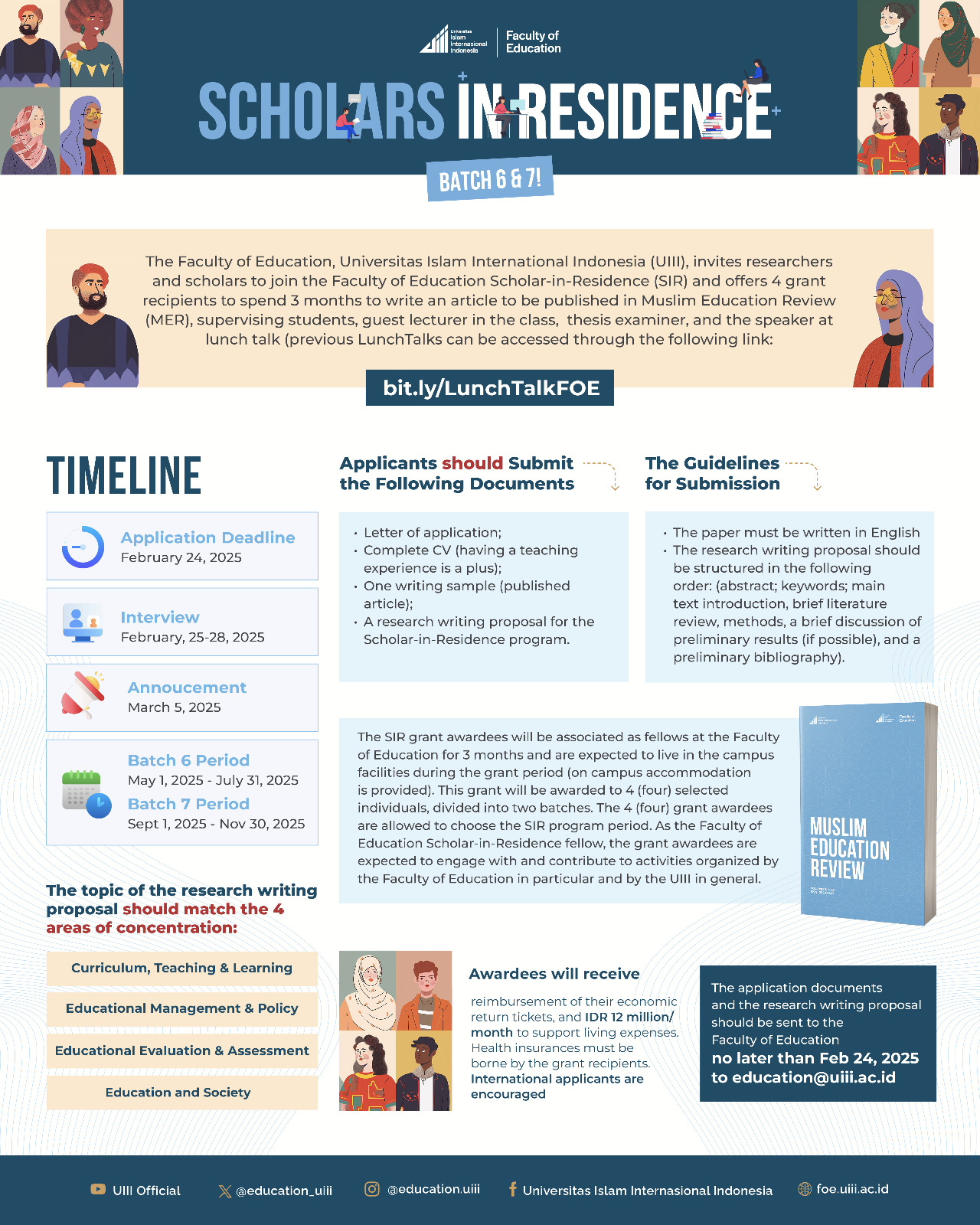
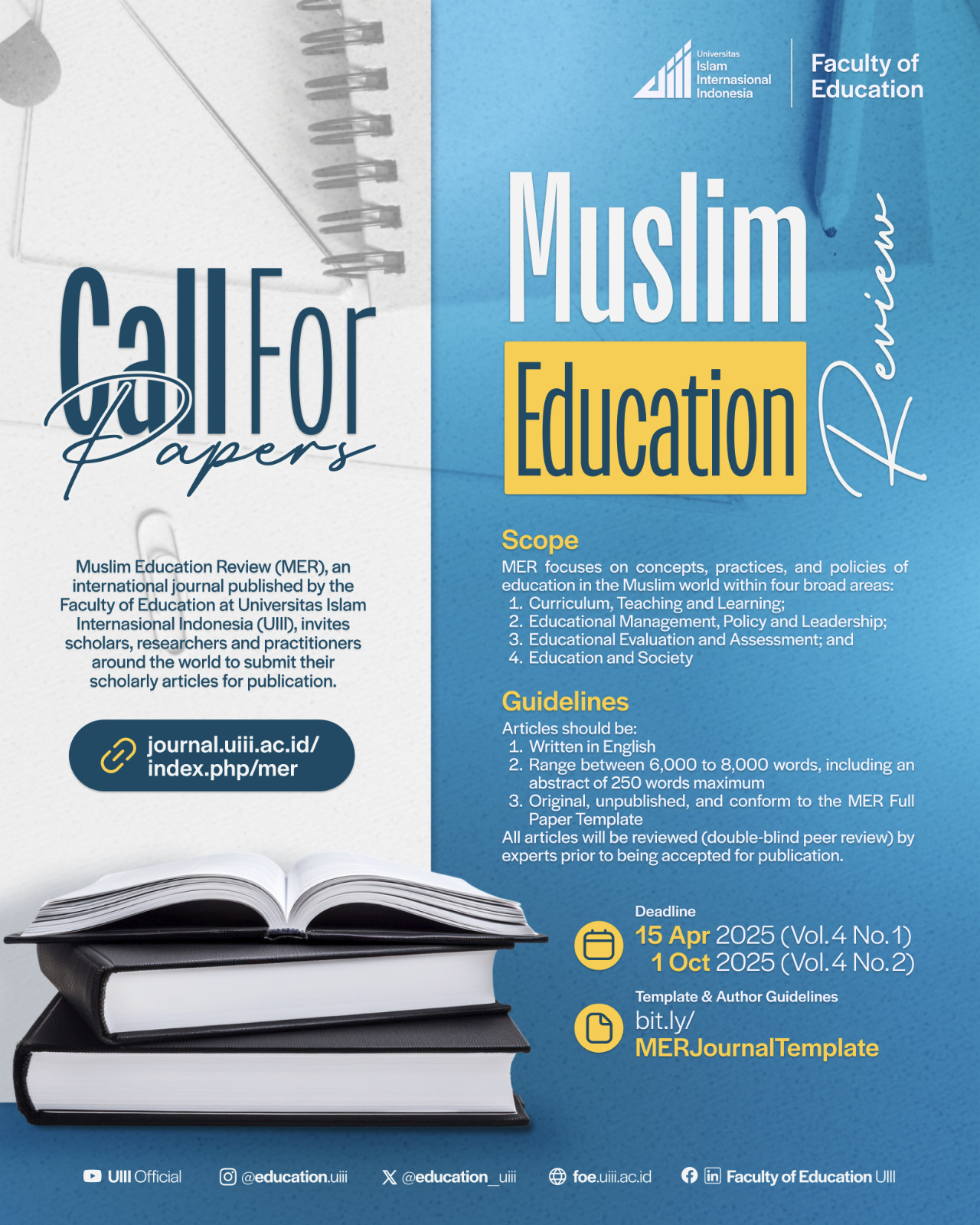
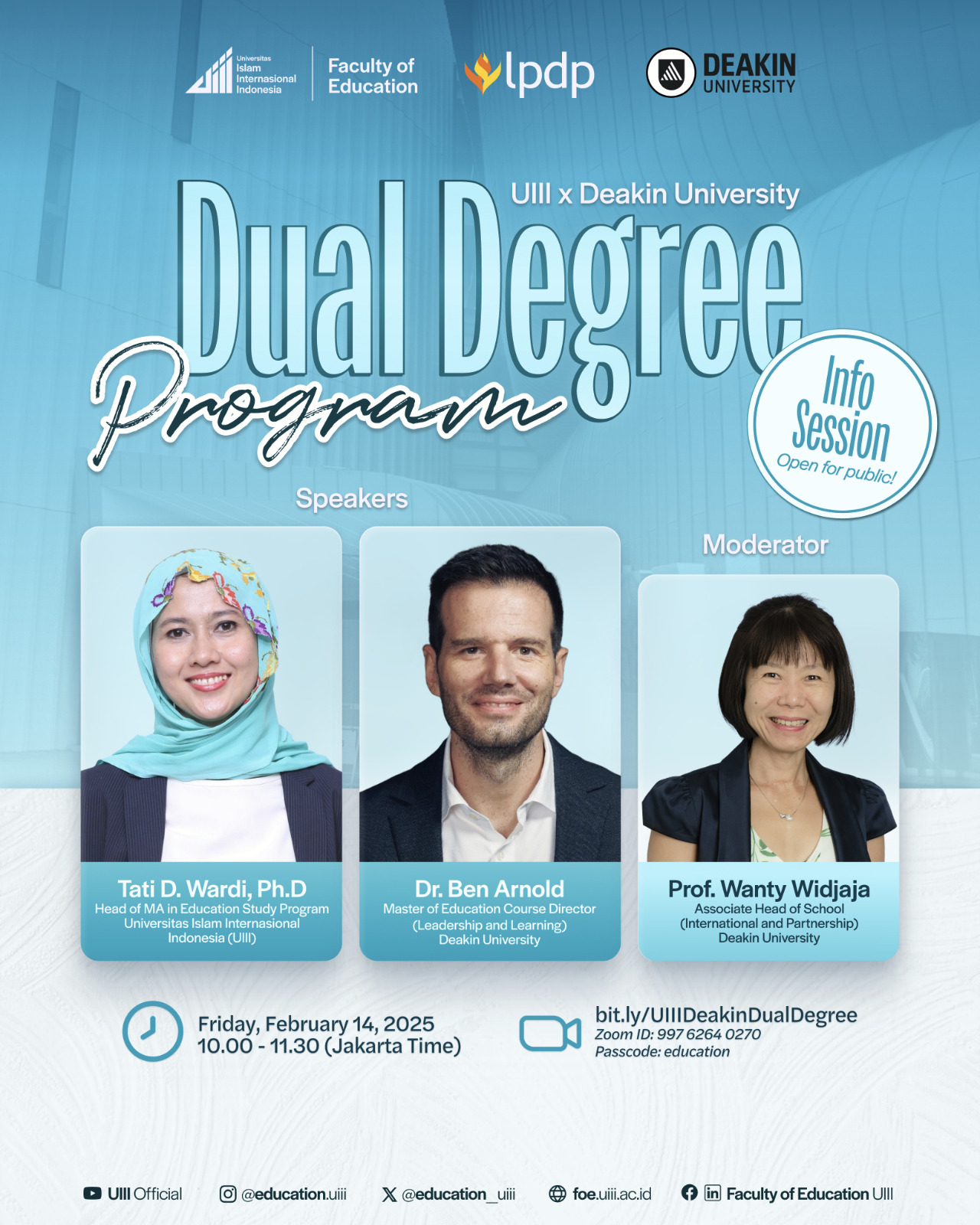

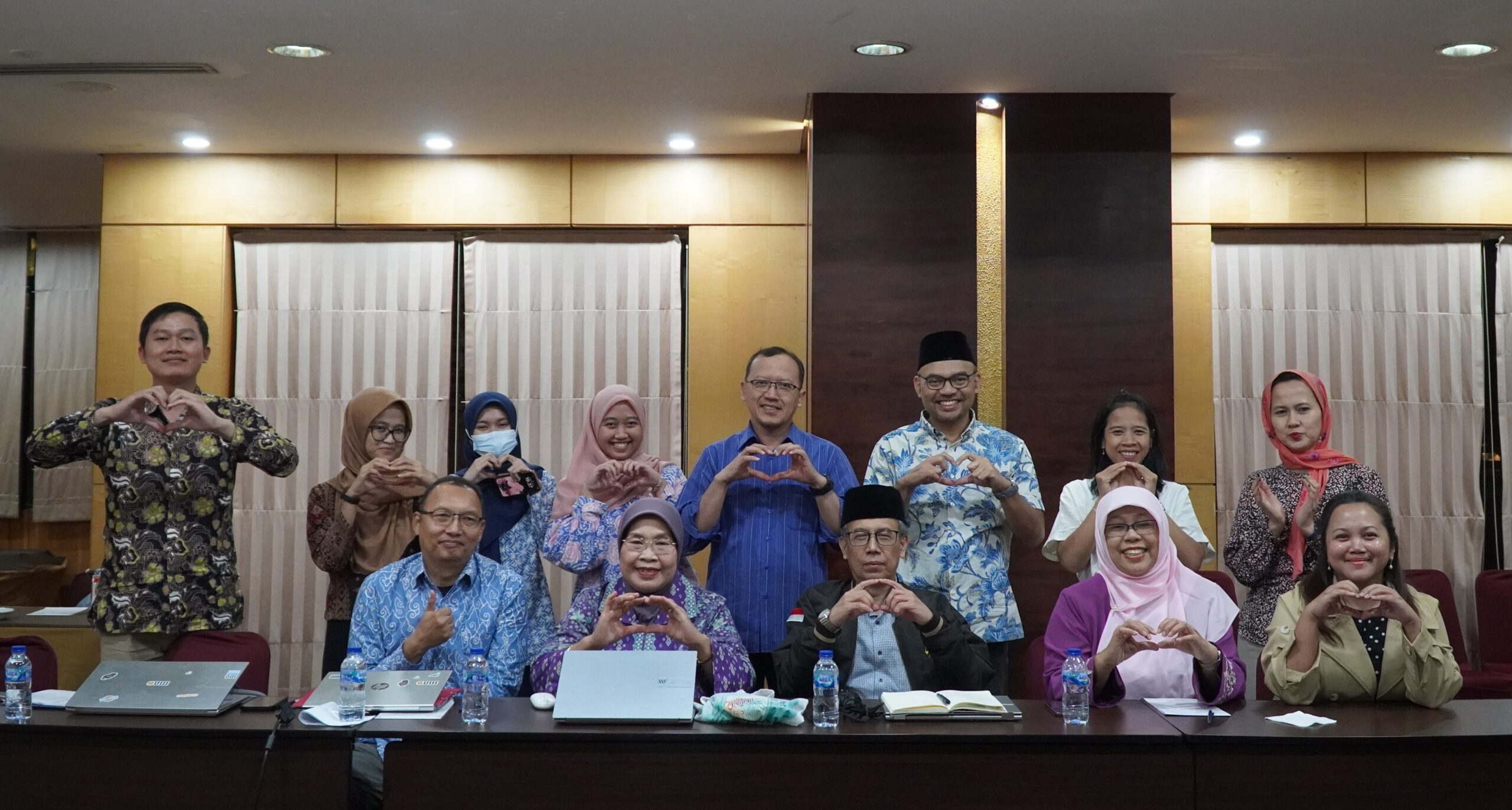
 source:
source: 